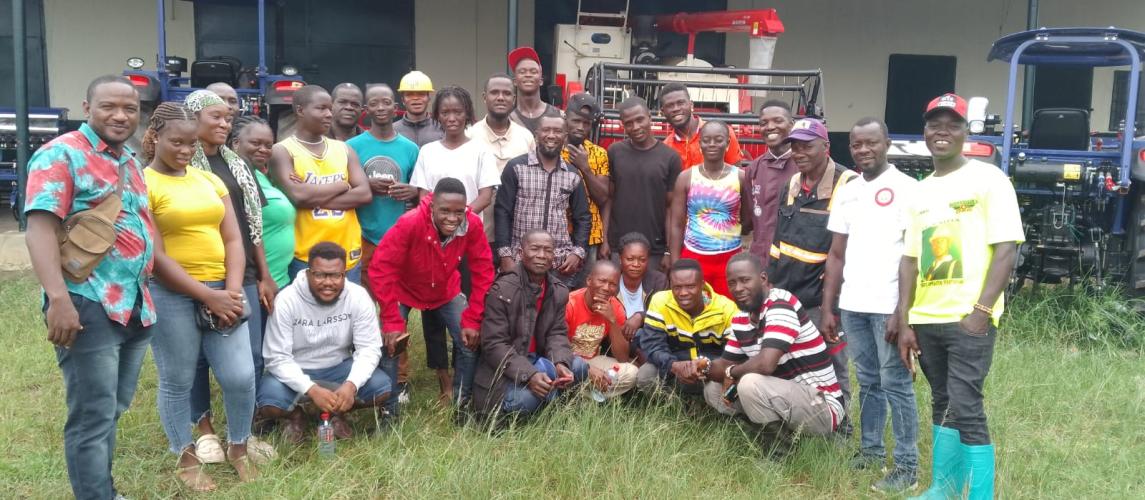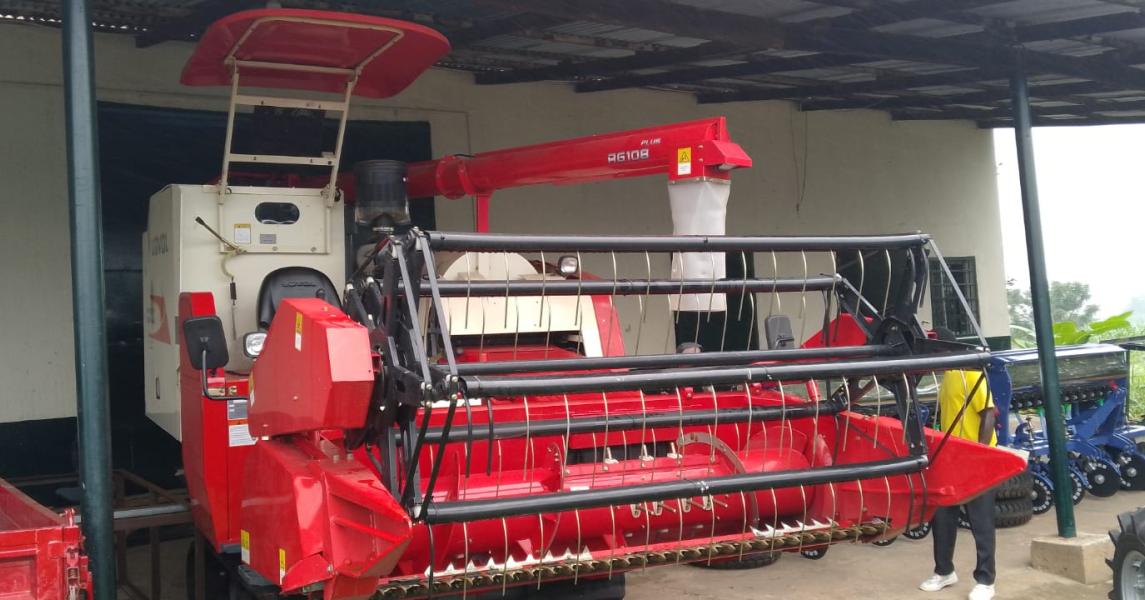
CARI Agricultural Mechanization Program Trains 30 Interns, Operators of Agro Machinery on Safety, Maintenance
Suakoko, Liberia - The Agricultural Mechanization and Irrigation Program at the Central Agricultural Research Institute (CARI) has conducted a week-long training in farm machine operation and maintenance.
Implemented under the Smallholder Agriculture Transformation and Agribusiness Revitalization Project (STAR-P), Anthony J. Taplah, acting head of the program, said the training addressed technical skills and knowledge gaps on the operation and maintenance of farm machinery.
The training brought together a team of facilitators from the Ministry of Agriculture, CARI, 30 interns from the College of Agriculture, University of Liberia, Booker T. Washington Technical College, smallholder farmers, farm machines operators, extension officers, and field technicians.
Alongside the field technicians, extension officers from AfricaRice, and smallholder farmers from the counties of Montserrado, Grand Bassa, Margibi, Bomi, Gbarpolu, Lofa, Nimba, and Bong, the training brought together 30 interns from the University of Liberia and United Methodist University.
“More than 30 participants learned how to operate tractors and other agro machinery because the maintenance of agro machines is very critical to crop production,” Mr. Taplah, lead facilitator, said during one of the practical sessions.
Some of the topics covered, according to the lead facilitator, include basic safety knowledge, introduction to agro-machinery, maintenance, practical and visitation of CARI facilities.
The mechanization hub at CARI recently assembled dozens of farm machines brought in by the Ministry of Agriculture under the STAR-P project.
STAR-P, the World Bank-funded project implemented by the Ministry of Agriculture and the Central Agricultural Research Institute, has developed a demonstration site for rice production and trained smallholder rice farmers for production intensification.
The mechanization hub at CARI was set up to allow technicians to assist farmers in the fields on basic knowledge about machines because research has shown that over 30 percent of farm machines in Liberia usually end up as scraps due to minor repairs.
“When the farmers do not know how to repair their own machines, maintenance, either changing oil, or parts, they sit there with their machines and that ends up that way.”
Against this backdrop, the hub has embarked on training farmers on the basic repair, operation, and maintenance of farm machines. The center provides technical support to farmers across the country to learn to repair their farm machines. The counties Bong, Nimba, Lofa, Rivercess, Bomi, and Gbarpolu are some of the areas where the mechanization center continues to train farmers.

According to Tarplah, mechanization is the arm of agriculture that increases productivity in the country, but it has to be done right in order to succeed in training farmers in the operation, maintenance, and above all, develop a model farm that can be used for farmers’ field training school in Liberia.
The model farm when established, Tarplah indicated, would provide hands-on training for farmers to have practical demonstration knowledge gained in land preparation, harvest, post-harvest, and value addition.
He recommended that for Liberia to meet up with the looming food security challenge, beginning with the University of Liberia offering courses in agriculture engineering as a degree program.
Tarplah also recommended that CARI get involved in basic and applied research to develop machinery appropriate for Liberia, train artisans to improve their livelihood; and train farmers on the operation and maintenance of farm machines.
Speaking on behalf of the training participants, Kollie Y. Harris, Lofa County University farm manager, said besides power tiller, farmers across the country have little or no idea about farm implements and equipment to do farm work.
Working with what is available, he cautioned farmers to observe safety while using farm machines and that operators are mindful of safety gear at all times. He promised that the knowledge gained would be shared with other farmers upon his return to Lofa County.
Also commenting, Anesthesia Z. Gbarbeay, an intern from the United Methodist University lauded organizers for the knowledge gained in the operation, and maintenance of farm machinery.
